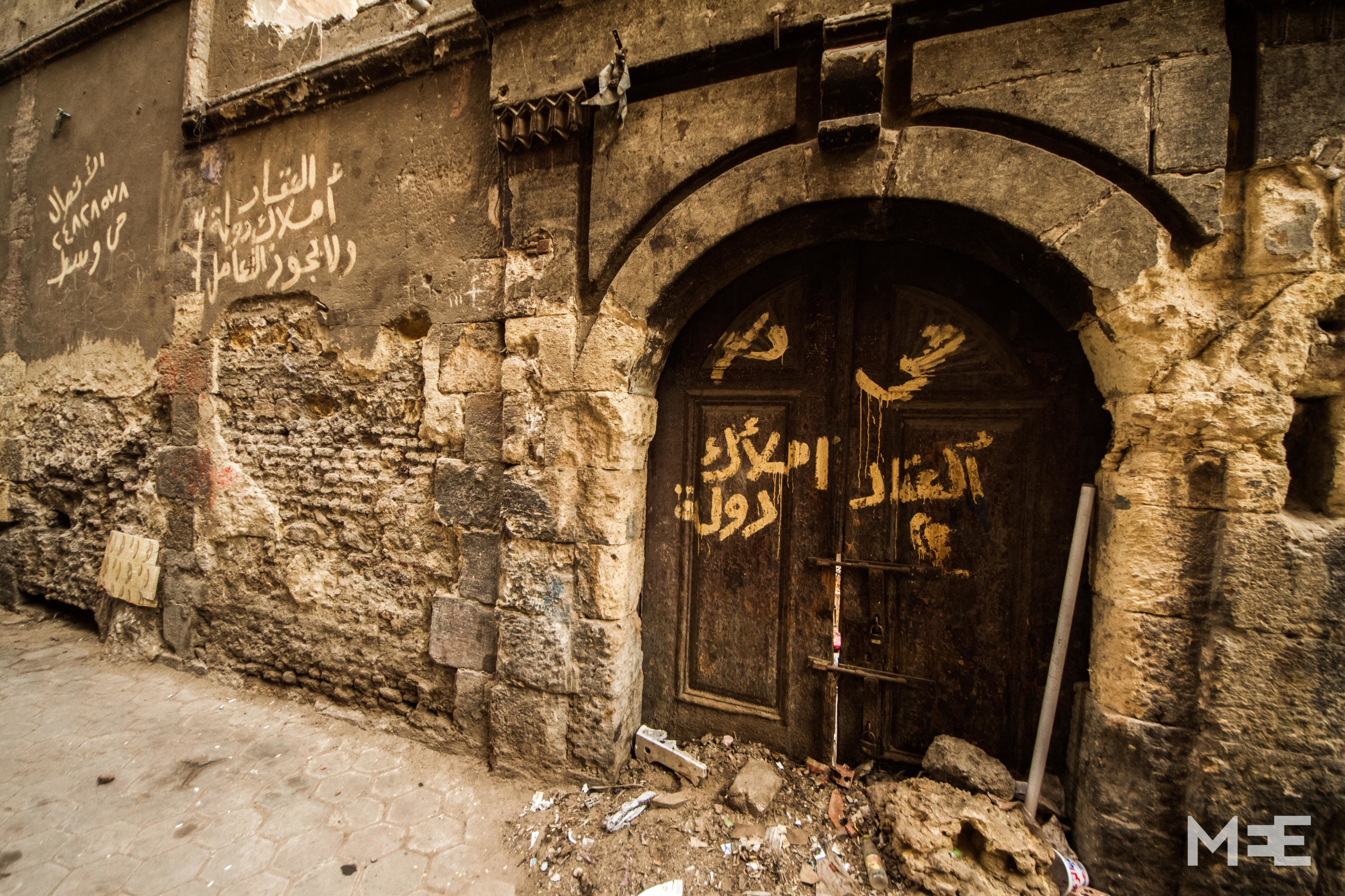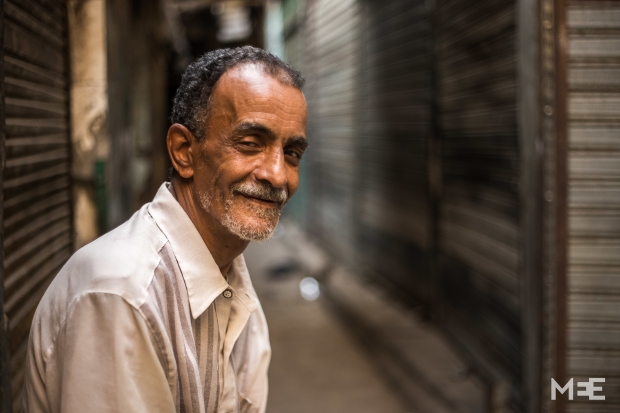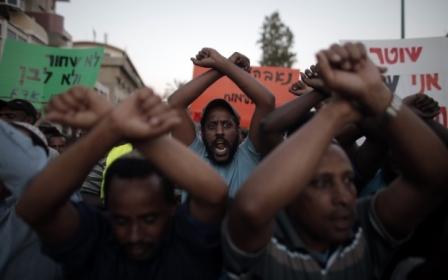The vanishing Jews of Egypt

CAIRO - Decades after he first started working in Cairo’s Jewish Quarter, Metwallyabd El Samad still lives in the area that was at one time filled with thriving jewellery shops and other businesses run by Egyptian Jews.
Now 73, Samad remembers the hustle and bustle of the tiny neighbourhood with fondness.
“I used to work in a silver shop owned by Livy Haroni,” he told Middle East Eye wistfully.
“I started working at his shop when I was young, about 12 years old, earning 70 piasters a week. I was so proud of my job because I was one of the few Muslim boys who worked in a Jewish-owned shop. Generally only Christians worked there, but Livy knew my father and trusted me with his work.”
“I kept working in his shop till he left directly after the 1967 war.”
It was the founding of the state of Israel in 1948 that changed the fortunes of Egypt’s Jewish population. Up until then, Jews had fled to Egypt from all over the world – seeking solace from worsening conditions in countries like Spain, Russia, Romania, Poland, Syria and Morocco.
But with the creation of Israel came arrests, segregation, deportation and persecution.
The Jews of Egypt were subject to waves of repression from 1948 till 1967, that were always related to the wars Egypt fought with Israel.
Mohamed Tareq, a local journalist, told MEE that parallels could be drawn between the violence faced by the Jews and the current government’s crackdown on protesters and activists.
“Many people were surprised by the rates of state violence against Islamists and activists, but it is actually the same with what happened in Egypt 60 years ago with the Jews,” he said.
“Ultra-nationalism, hysteria, the creation of an enemy of the state as a prerequisite to the continuity of a corrupt repressive state, it is just the same.”
Martial law was declared in Egypt after Israel was formed in 1948, and thousands of Jews were arrested over the course of a single week. Those who were not detained were effectively put under house arrest, with police officers standing guard outside their homes.
Nadia Ishak, now 78, is one of the few Egyptian-born Jews still living in Egypt, after she returned to the country of her birth in the early 2000s. She still remembers the night her family was taken by the police.
“I was very young, the memories fade each year. All I can remember is the knocking on the door, a police officer ordering us to get our clothes, and the smell of the night and the early dawn while we were loaded into the back of the truck with the officers.”
“My father and my mother left France escaping the shadow of the imminent war in 1909, but the consequences of another war had reached us in a different country.”
Ishak and her family were placed in detention for 50 days, along with hundreds of other families, and when they were released they were given a month to leave the country.
The charges against them were that they were Zionists – something Ishak denounced vehemently to MEE.
“My father and my mother had no intention of betraying the country they lived in for about 30 years. They came searching for peace, safety and stability - we never did or had the intention to engage in any of the activities we were falsely accused of.”
A similar fate befell Livy Haroni, El Samad’s former boss.
Haroni was fortunate because he had a British passport – and Jews with foreign nationalities were generally treated better than those who were Egyptian born and bred.
He was first put under house arrest during the Suez Canal war in 1956, but it was not until the 1967 war that he was eventually arrested, deported and had all his assets nationalised.
Haroni managed to sell his shops to the Egyptians working for him – and one went to El Samad.
“Part of me was very happy for this unexpected fortune that came to me, but the other part was very sad over the injustice and the ordeal of the kind old man.”
“He clung to the hope that he was going to come back one day. He gathered the people he gave his shops to, and made them promise him that they would return the shops to him if he ever came back.
“He never came back. I heard of his death about 10 years later.”
Nadia Ishak was not the only Egyptian-born Jew to return to her home country at the start of the 21st century.
In the early 90s, there were reports that the last Jew living in Egypt had died. However, it was not the end of the long story of the Jews of Egypt that dates back to the time of the Pharoahs.
With the advance of the year 2000, some Egyptian Jews living in European countries came back to Egypt. There were no more than 20, and half of them returned to Europe again.
Sara Kuhin, a 75-year-old Egyptian-born Jew who returned to Egypt in 2002, spoke to MEE about what she went through when she came back.
"I left Egypt in 1965. When I made the decision to come back, I knew for sure that things weren't going to be the same, but I was totally surprised by what I saw. I spent my early youth in the beautiful streets of Cairo and I was deeply connected to the city. When I came back after 37 years, it wasn't the same city at all - a horrendous, crowded and polluted city is what I found. The streets are ugly, the buildings are also ugly. They succeeded turning Royal Cairo to a symbol of savage urbanism and decay."
As Livy Haroni cherished the hope to return to Egypt, Sara and Nadia also have their own hopes that a day will come when people of all faiths will live together again. That hope was their key motive behind their decision to return.
Sara tells MEE: "We have a right to live here, despite all the hardships, and despite what Egypt turned into under the rule of the so-called Free Officers. Despite all of that, Egypt remains my country. I consider myself one of the few who state that, and I hope I live long enough to show more widely that there are still some Egyptian Jews who continue to live in this country."
Many hoped that the return of the handful of Jews to their homeland would be the dawning of a new era. The government, however, failed to offer any help to the minority community trying to re-forge their lives here.
Even finding someone to conduct burial rites according with their beliefs is a struggle.
When asked if there would be more support from the government towards the problems faced by the Jewish community, Tareq was not optimistic.
“I actually predicted that the government would address this issue when [President] Sisi came to power, that they would use this issue in their search for more international legitimacy, but they didn’t. And it doesn't look like they will start doing so any time soon."
New MEE newsletter: Jerusalem Dispatch
Sign up to get the latest insights and analysis on Israel-Palestine, alongside Turkey Unpacked and other MEE newsletters
Middle East Eye delivers independent and unrivalled coverage and analysis of the Middle East, North Africa and beyond. To learn more about republishing this content and the associated fees, please fill out this form. More about MEE can be found here.





